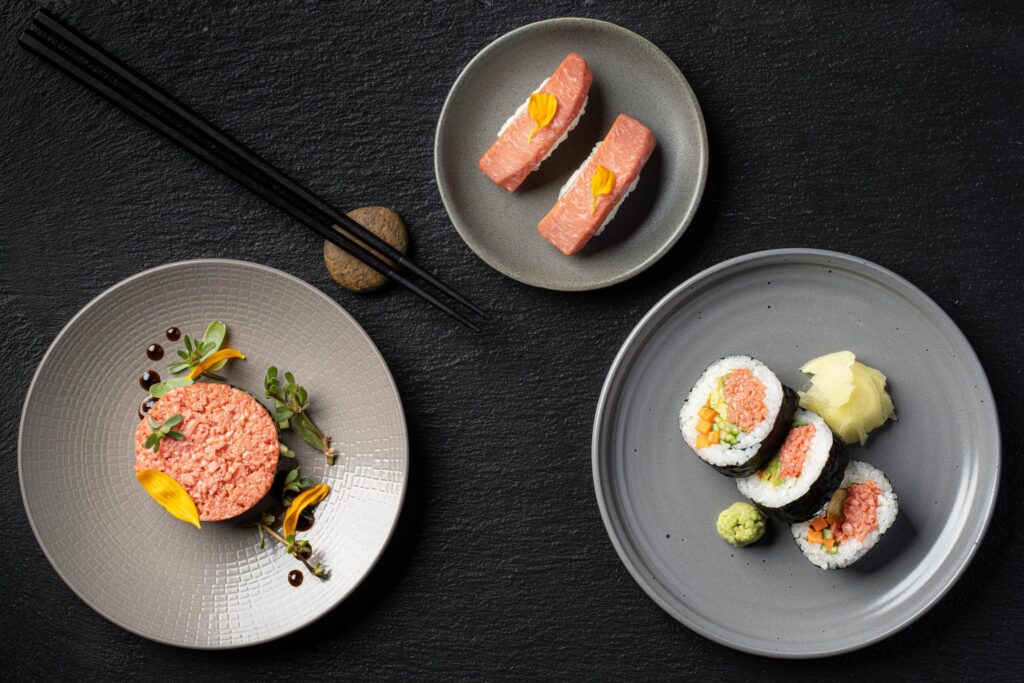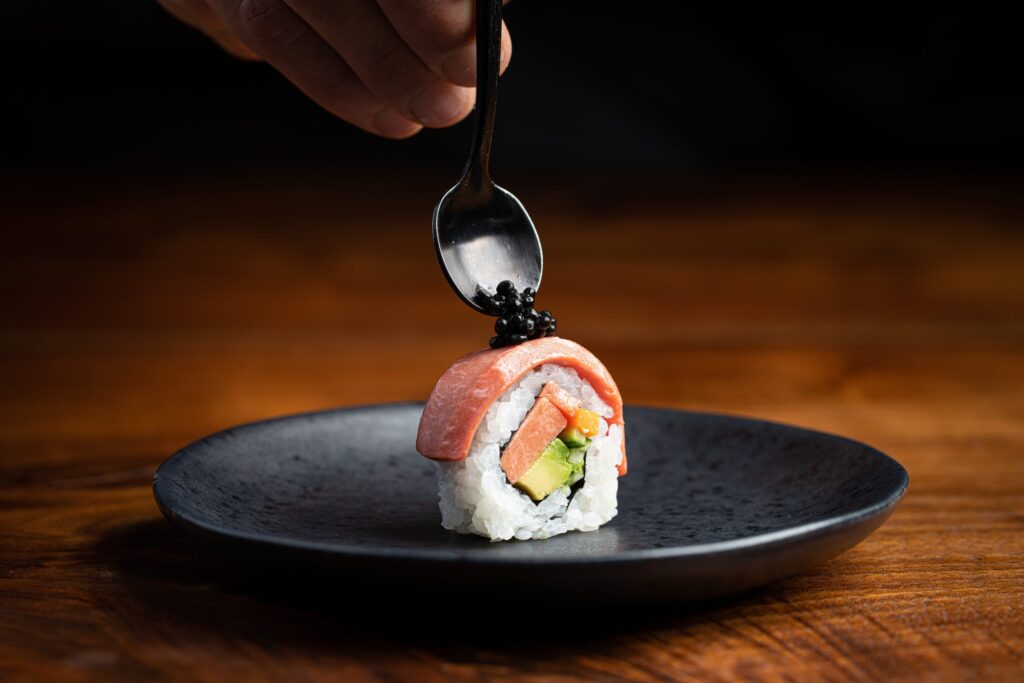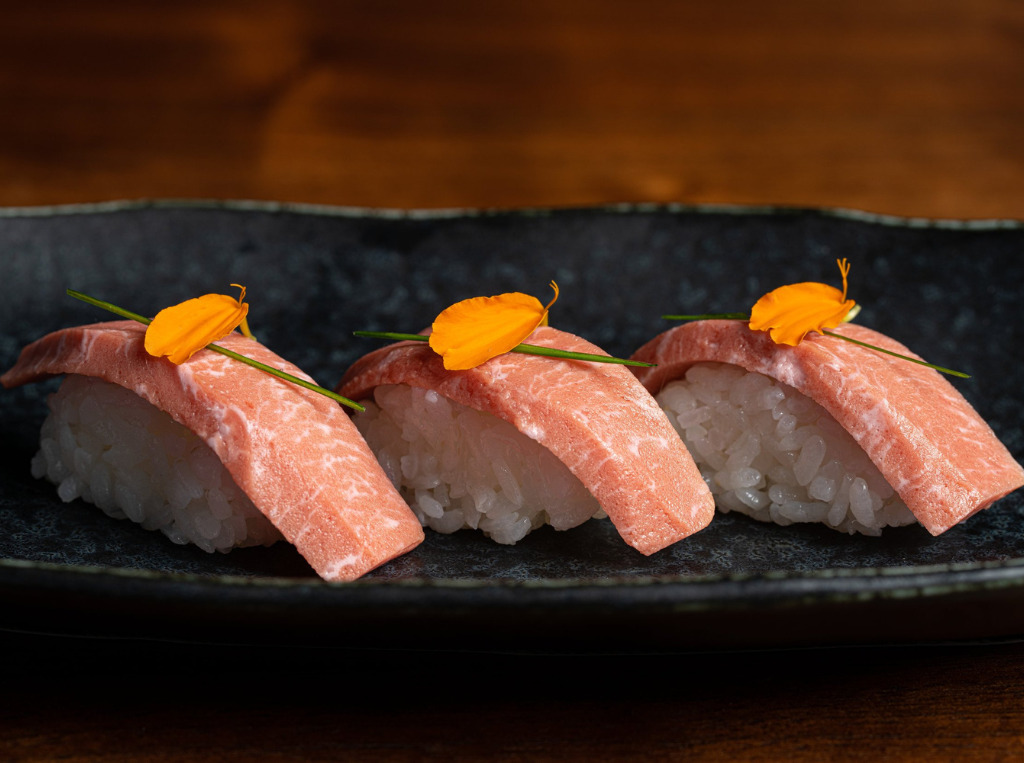Cultivated Tuna Maker Reels in $33.5M Series B, Talks Launch Plans and APAC Strategic Partnerships
5 Mins Read
US-cultivated seafood producer BlueNalu has closed a $33.5M Series B funding round and extended partnerships with legacy seafood leaders in APAC to bring its cell-cultured bluefin tuna to market once it receives regulatory approval.
BlueNalu, whose first product is a whole-muscle bluefin tuna, says the new funds will help it scale and commercialise its alt-seafood. In 2021, it received a record-breaking $60M investment – the largest sum for a cultivated seafood company at the time. This followed a $20M Series A round in 2019 and a $4.5M seed funding round the year before.
While the details of the Series B raise are under wraps, it did include VC fund Agronomics, which has previously invested in cellular agriculture companies like Mosa Meat, Meatable, The Every Co and Formo. Agronomics has now invested a total of $8M across the seed and Series A rounds, and in a pre-Series B convertible note that has now transferred into preferred shares. This means it holds a 5.12% equity stake in BlueNalu.
Profitability and commercial production

The funding news comes on the heels of the Californian company extending its partnerships with Asian seafood giants Pulmuone (South Korea), Mitsubishi (Japan) and Thai Union (Thailand). BlueNalu partnered with the latter two in April 2021 to accelerate the launch of its alt-seafood products in the APAC region.
Toro, the fatty part of bluefin tuna belly, is a premium sushi- and sashimi-grade seafood product, with its limited supply making it highly sought after. But BlueNalu says it can be extremely variable in quality and sensory attributes and faces steep declines in fish stocks due to overfishing and illegal, unregulated and unreported fishing.
While Bluefin currently operates out of a 38,000 sq ft pilot plant in San Diego that has the capacity to produce enough seafood for a small-scale launch, it hopes to begin construction on a large commercial facility in 2026, with plans to start production 18 months later. It announced these plans last year, claiming the 140,000 sq ft plant will be able to produce six million lbs of seafood once operational.
Simultaneously, it demonstrated a projected 75% gross margin within the first year of the large-scale facility being operational, via an in-depth techno-economic analysis. Since bluefin tuna toro is already a prized product with a premium price, a cultivated alternative would not carry the same cost difference as meats like beef or chicken.
BlueNalu confirmed that it has developed hundreds of cell lines for eight different finfish species, with ongoing projects looking to expand into other premium seafood categories as well.
Asia focus and regulatory approval

Originally, the company planned to introduce its cultivated tuna to the US foodservice sector in late 2021 and has looked into opportunities for a European launch through a partnership with frozen foods leader Nomad Foods. But it has magnified its focus on Asia now, with the renewal of its collaborations with the three seafood giants, as the region accounts for over 80% of global bluefin toro consumption.
“We are honoured to deepen our collaborations with Mitsubishi, Pulmuone and Thai Union, visionary partners who share our commitment to driving innovation and shaping the future of the seafood industry,” said BlueNalu CEO and president Lou Cooperhouse. In January 2022, the company also entered a deal with Food & Life Companies, Japan’s largest sushi restaurant chain.
“These extended partnerships in the APAC region underscore our dedication to working collaboratively with local experts in each region that we target, and our ultimate goal to provide our customers with healthy and trusted seafood options that have superior product benefits and align with evolving market conditions.”
Asia is home to the first country to approve the sale of cultivated meat, with Eat Just getting clearance to market its cell-based chicken in Singapore in 2020. Earlier this year, the US became the second, with USDA approval granted to Eat Just and Upside Foods. And in Europe, Israeli-cultivated meat producer Aleph Farms filed for approval in Switzerland and the UK earlier this year. BlueNalu is in the process of evaluating market strategies and reviewing regulatory frameworks to facilitate its commercial launch.
Increased funding for the alt seafood category

According to the industry think tank the Good Food Institute, at least 20 companies are working in the cultured seafood sector across the supply chain, with investment tripling between 2016-22. Some of these producers include Umami Meats, Avant Meats, Shiok Meats, Bluu Seafood, Finless Foods, Wildtype Foods, and Marinas Bio (which is making a similar move into premium seafood with cultivated caviar).
Wildtype (also Californian) surpassed BlueNalu’s record to secure the largest-ever cultivated seafood investment with a $100M Series B for its cell-based salmon in 2022. Meanwhile, China’s Avant closed a $10.8M Series A round the same year, while in 2021, Singapore’s Shiok Meats closed an oversubscribed bridge round that brought its total financing to $30M. And earlier this year, Berlin-based Bluu Seafood secured $17.5M in a Series A raise with the aim to launch in Singapore next year.
It’s a sign of alt-seafood’s growing potential. The vegan seafood category has seen a bundle of activity this year, with startups like Konscious Foods and Hooked Foods securing funding, and two European brands receiving a €1.5M grant to create 3D-printed mycoprotein to replace seafood.
There have been various product launches too, including Canadian brand Seed to Surf‘s whole-food plant-based snow crab and whitefish, South Korean producer Unlimeat‘s upcycled vegan tuna, Singapore-based HAPPIEE‘s vegan shrimp and squid in the UK, and Austrian company Revo Foods‘ 3D-printed whole-cut salmon.




